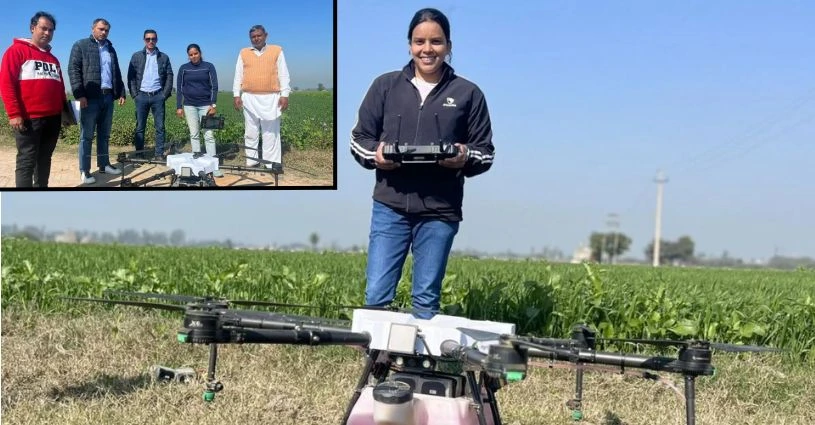In the modern world, technology has ingrained itself into every aspect of our life. Every sector has been touched by modernisation, including but not limited to the agricultural sector. From clever irrigation system to cutting-edge equipment, new technology is developed everyday to help farmers more conveniently and efficiently carry out their duties. Unfortunately, most of the time, this technology fails to reach the farmers of India in remote areas. However, Nisha Solanki, Haryana’s first female drone pilot, wants to see the farmer reap the benefits of progressive farming, and hence tries her best to ensure that they do.
Nisha is an agricultural engineer. But to connect farmers with technology, she learned to fly drones. Today by becoming a drone pilot, she is teaching farmers the ways of modern farming. She had undertaken agriculture as her subject due to the patriarchal perception of farming, so that she can help more women and youth get involved in farming.
During her studies, she came to know about the immense benefits of using drones for farming. Once she realised this, she decided to try something completely out of the box. She took a professional drone pilot course and became Haryana’s first female drone pilot. Currently, she works on the drone project by joining the Maharana Pratap Horticulture University in Karnal.
Here’s how drones can prove to be immensely useful for farmers:
Drones are boon for farmers according to Nisha. Farmers can not only just save huge amounts of water by spraying water and medicine with drones, but also get hours of work done in minutes. While traditionally, 200 liters of water is required per acre of filed, a drone uses only 10 litres of water for the same area. Spraying the pesticides manually also holds significant risk to the farmer’s personal health, whereas it won’t be a problem with the help of drones.
Nisha hopes that with her efforts, many farmers will hopefully benefit from modernising their approach to farming. She hopes that every farmer will have access to drones, and the agricultural landscape will be revolutionised.
